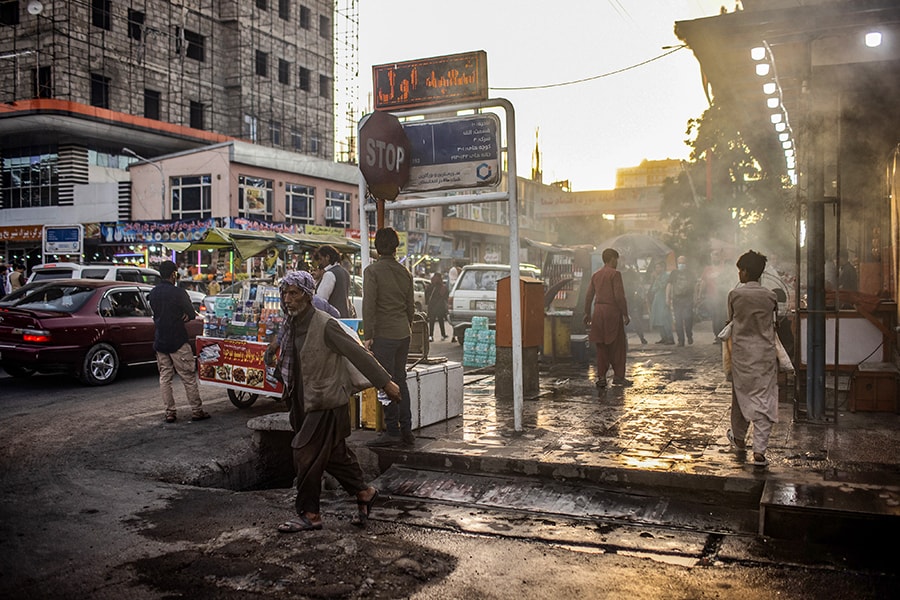
China criticised the Afghan War. Now it worries about the withdrawal
While China has not called on President Joe Biden to reverse the military withdrawal he ordered, statements by senior officials made it clear that they would blame the United States for any insecurity that spreads in the region
 A street scene in Kabul, Afghanistan, on July 2, 2021. While China has not called on President Joe Biden to reverse the military withdrawal he ordered, statements by senior officials made it clear that they would blame the United States for any insecurity that spreads in the region; Image: Jim Huylebroek/The New York Times
A street scene in Kabul, Afghanistan, on July 2, 2021. While China has not called on President Joe Biden to reverse the military withdrawal he ordered, statements by senior officials made it clear that they would blame the United States for any insecurity that spreads in the region; Image: Jim Huylebroek/The New York Times
The Chinese government rarely passes up a chance to accuse the United States of military adventurism and hegemony. In the case of Afghanistan, though, it has changed its tone, warning that Washington now bears the responsibility for the hasty end to its two-decade war there.
“The United States, which created the Afghan issue in the first place, should act responsibly to ensure a smooth transition in Afghanistan,” China’s foreign minister, Wang Yi, said this month at a forum in Beijing. “It should not simply shift the burden onto others and withdraw from the country with the mess left behind unattended.”
While China has not called on President Joe Biden to reverse the military withdrawal he ordered, statements by senior officials made it clear that they would blame the United States for any insecurity that spreads in the region.
China’s leader, Xi Jinping, and President Vladimir Putin of Russia — neither of them close friends of the U.S. president — raised concerns about the withdrawal in a telephone call June 29, citing “the increasingly complicated and severe security situation,” according to Xinhua, the state news agency.
An explosion and vehicle crash that killed nine Chinese workers in Pakistan on Wednesday has punctuated China’s fears of regional instability in the wake of the final U.S. military withdrawal from Afghanistan and the chaos that is now spreading across the country.
©2019 New York Times News Service




